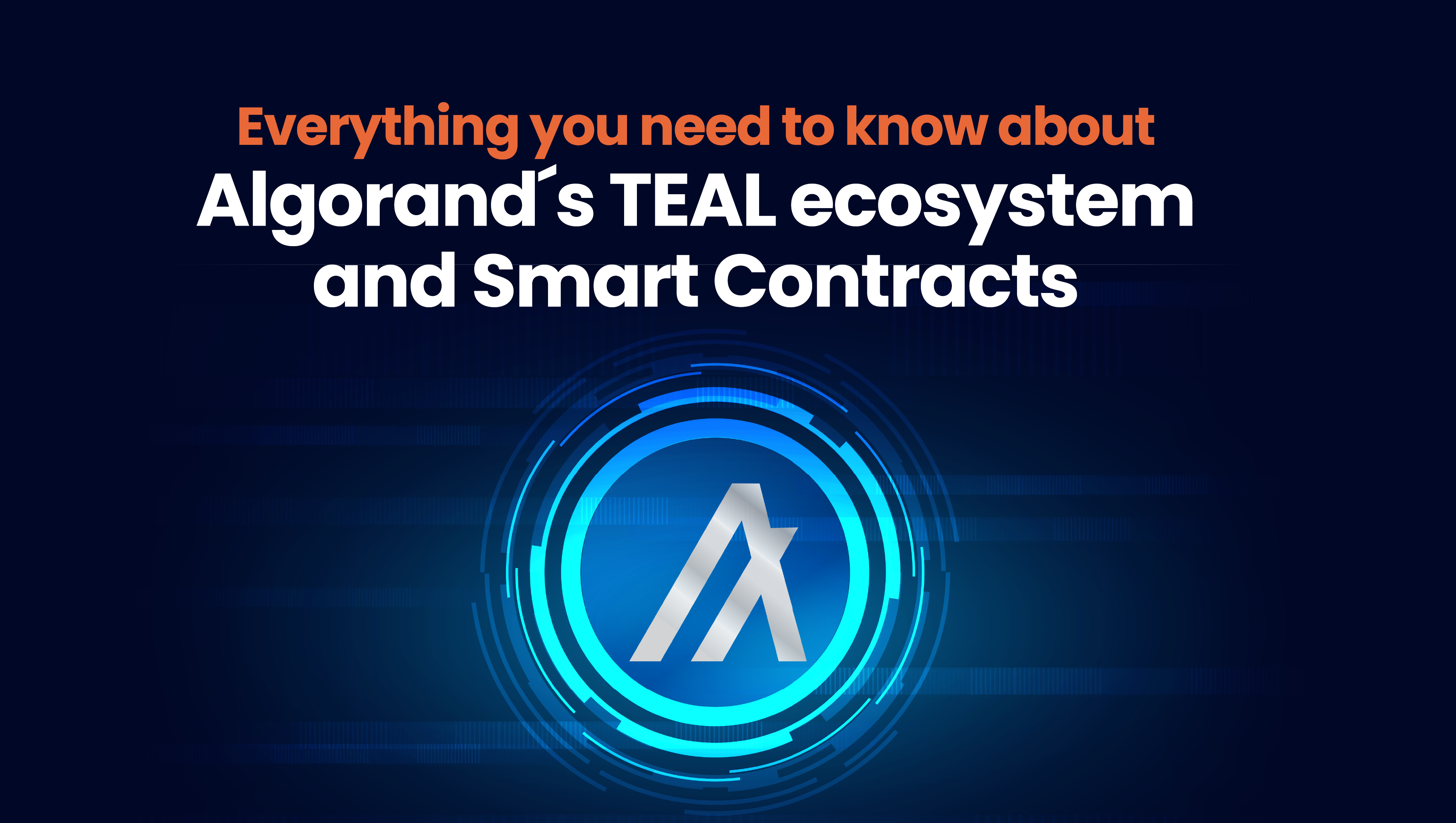Everything you need to know about Algorand’s TEAL ecosystem and smart contracts

Algorand, a leading blockchain technology company has recently released the latest version of Layer -1 Smart Contracts (ASC1), named Transaction Execution Approval Language (TEAL). Developers can now take advantage of the network in a cost-effective manner without compromising speed and simplicity.
The Smart Contracts are executed on a tamper-proof (trustless) network with a flawless, immutable and accurate applications while maintaining complete transparency.
A bit more focus on TEAL
Algorand’s smart contracts are written in an assembly-like language. These are small programs and can be used to replace the need for signatures within a transaction. TEAL can analyze and approve transactions with one primary function –to return true or false.
Usually, standard transactions are signed with a private key. With the introduction of this smart contract, transactions can be signed with a TEAL program. The new language has some unique functionalities like
- Better application permissions in addressing user demand
- Full access to transactions in the Atomic Transfer Capability
- Ability to manipulate stack and data values more concisely.
- A precise way to express requirements
Here are some applications that are now easier and more efficient if you want to use Algorand.
- Multiple Raffle Applications, from traditional to a FOMO 3D Raffle
- A Rent-Seeking Auction Application
- NFT Generator: A Smart, Yield Generating NFT Application
Algorand smart contract can help in key DeFi transactions
Stablecoins
Stablecoins reduce the risk taken by the investors as they are pegged to fiat currencies like USD or EURO using smart contracts. Tether and USDC are two of the leading stablecoins that have been launched on the Algorand blockchain thus enabling scalable with reduced risk.
Credit and lending
DeFi applications have made the credit and lending space easier than ever. Smart contracts can replace the intermediaries with self-executing lines of code that have plagued the lending industry. Moreover, organizations can offer more credit at a lower cost due to no compliance costs. Thus, people have access to cheaper loans.
Alternative savings
These alternative savings accounts are built on smart contracts and serve the same purpose as the traditional savings account. However, they remove the need for an intermediary who would take a significant percentage of interest earned on lent funds. With DeFi savings, rewards are distributed only to the account holders depending on the interest amount accumulated over time.
Payment solutions
Trading assets between multiple parties require a trusted intermediary like a bank. On Algorand smart contract, assets are simplified into a technological innovation that doesn’t need a centralized intermediary. This is called atomic transfer and it is built at Layer-1 which can be used with any type of transaction like payments, transfers, calls etc.
Limitations of TEAL
By design, Algorand’s smart contract language has some limitations like the following
- TEAL can analyze a single or group of transactions but can’t change it.
- The language can’t look up Algo or Algorand Standard Asset balances.
- TEAL doesn’t have the ability to look up information in the previous blocks.
- Timestamp is not available; meaning TEAL doesn’t have the ability to record the time of a transaction.
Despite some limitations, TEAL is a very powerful consensus protocol. Since the launch, it doesn’t experience any downtime or performance degradation which is a reiteration of its security, reliability, and capabilities.

